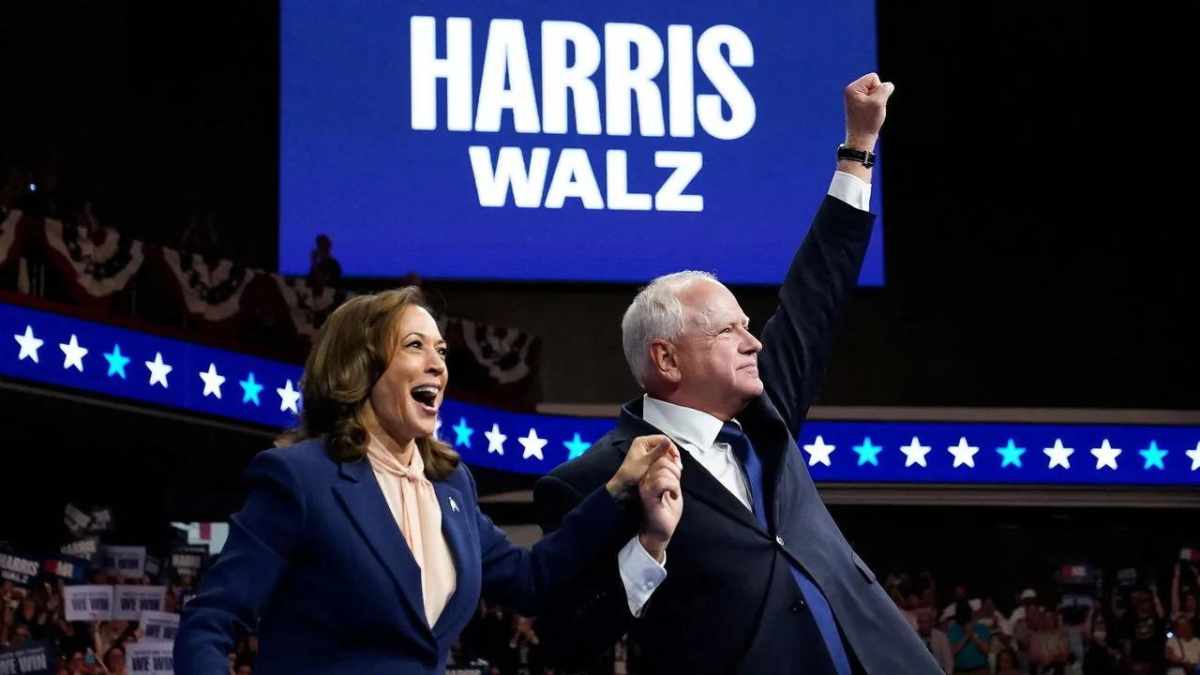
In the ever-evolving landscape of U.S. politics, few tickets have generated as much controversy and debate as the Democratic pair of Vice President Kamala Harris and Governor Tim Walz. With their staunchly progressive policies and deep ties to the Democratic Party’s left wing, they are being touted as the most radical ticket in American history. According to Representative Elise Stefanik, who has voiced her concerns on this topic, the Harris-Walz duo represents a seismic shift away from traditional American values. In this article, we will delve into the concerns raised by Stefanik, explore their policies, and analyze the potential impact of their leadership on the nation.
Kamala Harris and the Open Borders Policy
One of the most controversial issues surrounding Vice President Kamala Harris is her involvement in the Biden administration’s border policies. Harris has been tasked with addressing the root causes of migration from Central America, but critics, like Stefanik, argue that she has failed to secure the southern border, leading to an influx of illegal immigrants and a spike in criminal activity. This, according to Stefanik, is a catastrophic failure that prioritizes illegal immigrants over law-abiding Americans.
The southern border has seen unprecedented numbers of migrants crossing into the United States, and Stefanik points to Harris as one of the key architects of this crisis. She believes that Harris’s policies have jeopardized national security, leading to tragedies that could have been avoided. Stefanik also criticizes Harris for her role in undermining immigration enforcement and supporting sanctuary cities, which she argues further exacerbates the issue.
Defunding the Police: A Divisive Policy
Kamala Harris’s support for defunding the police has also raised alarm bells among conservatives. Stefanik highlights Harris’s history of supporting efforts to reduce police funding, particularly during the protests and riots that swept the country in the wake of George Floyd’s death. Harris’s involvement in raising bail money for those arrested during protests further solidified her stance in favor of reducing law enforcement budgets.
Similarly, Tim Walz, as Governor of Minnesota, has been criticized for his handling of the unrest in his state. His decision to reduce police funding in certain areas, according to Stefanik, has led to a rise in crime and left communities vulnerable. Critics argue that this “soft on crime” approach has failed to address the root causes of violence and has instead emboldened criminals.
The Inflation Crisis: Harris’s Role in Economic Turmoil
The economic challenges facing the United States have been a focal point of criticism against the Biden-Harris administration. Stefanik specifically points to the Inflation Reduction Act, which Harris helped pass with her tie-breaking vote in the Senate. Critics argue that the act has done little to curb inflation and has instead contributed to rising costs for everyday Americans.
The economic policies championed by Harris, according to Stefanik, have led to a significant decrease in purchasing power for average Americans. From skyrocketing grocery prices to soaring energy costs, inflation has become a major concern for voters across the country. Stefanik argues that Harris’s policies have exacerbated this crisis by increasing government spending and expanding social welfare programs, which in turn has driven up the national debt and put further strain on the economy.
The Socialist Agenda: Harris and Walz’s Vision for America
Stefanik doesn’t shy away from labeling Harris and Walz as socialists. She argues that their policies are fundamentally anti-capitalist and are geared towards redistributing wealth rather than fostering economic growth. Harris’s support for programs like Medicare for All and free college tuition, according to Stefanik, are prime examples of this socialist agenda.
Walz, too, has been labeled a socialist by his critics. His policies as Governor of Minnesota, particularly his support for expanding government programs and increasing taxes on the wealthy, have been seen as part of a broader push towards socialism. Stefanik argues that these policies will ultimately hurt hardworking Americans by increasing the tax burden and stifling economic innovation.
The Afghan Withdrawal: A National Security Disaster
The withdrawal of U.S. troops from Afghanistan has been widely criticized as a debacle, and Kamala Harris’s involvement in the decision-making process has come under scrutiny. Stefanik argues that Harris was a key player in the decision to withdraw troops in a manner that led to the fall of Kabul and the loss of 13 American soldiers.
Stefanik points out that Harris was in the room when key decisions were made, and she holds her accountable for the disastrous consequences of the withdrawal. The situation in Afghanistan has been described as a national security failure that has emboldened terrorist organizations and left the U.S. vulnerable to future attacks. Stefanik believes that Harris’s leadership on this issue has been deeply flawed and has endangered American lives.
Conclusion: The Stakes in 2024
As the 2024 election approaches, the policies and track record of Kamala Harris and Tim Walz will undoubtedly be central to the national debate. Critics like Representative Elise Stefanik argue that their radical agenda represents a dangerous departure from American values and poses a threat to the nation’s future.
From their handling of the border crisis to their economic policies and stance on law enforcement, Harris and Walz have become emblematic of the Democratic Party’s leftward shift. Whether or not voters agree with this characterization, the stakes in the upcoming election are high, and the future direction of the country hangs in the balance.